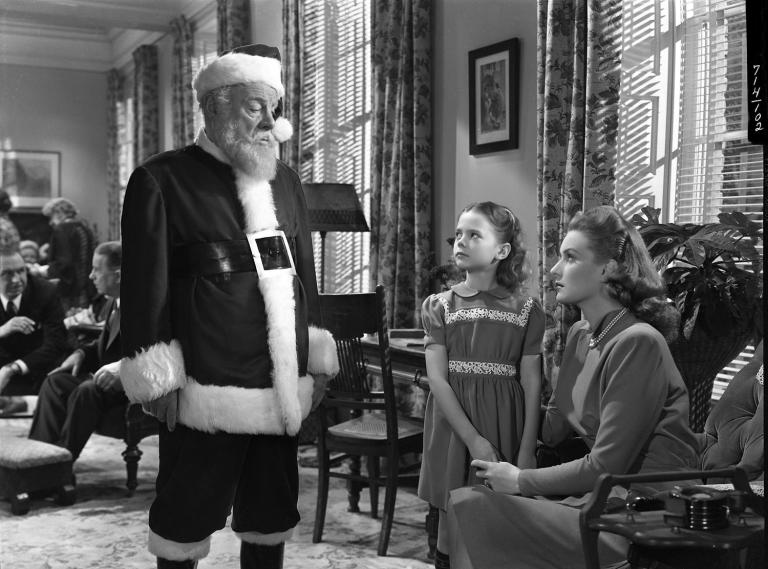Christmas greetings! Thank you for your patience as this blog has gone semi-dormant this past semester. I have hopes that next semester will be less back-breaking, and I’ll be able to resume writing about all my favorite things. For the immediate future, I’m hoping to knock out some mini-reviews for the backlog of CDs I wasn’t able to listen to properly this semester. (Apologies to any record labels and artists who’ve been patiently waiting for my feedback.) Also, Little Sister is slated to make a guest appearance and lend her thoughts on the new Star Wars movie (she seems to have been a popular guest in the past, so I’ll not mess with success!) In addition, I’ve been asked to write a piece about the enduring popularity of Star Wars for Summit magazine, so stay tuned for a link to that. It still hasn’t quite sunk in that I’m getting paid to write about Star Wars. Merry Christmas to me. (I guess even worldview organizations feel like just having fun once in a while.) Finally, I’m putting together a Top 5 list of 2015 films and hope to have that posted soon.
But, for now, I want to write some reflections on the popular carol “White Christmas,” sparked by some backstory I had never heard until yesterday.
The song was debuted live on Christmas Day, 1941, just weeks after the attack on Pearl Harbor. It would go on to become such a beloved classic that the master of Crosby’s 1942 studio recording wore out, so the version we know today is actually a re-recording from 1947. What I didn’t know was that Crosby said he was hesitant to perform the song overseas. He explained in an interview, “I hesitated about doing it because invariably it caused such a nostalgic yearning among the men that it made them sad. Heaven knows, I didn’t come that far to make them sad. For this reason, several times I tried to cut it out of the show, but these guys just hollered for it.”
Some of you might remember the scene from the opening of the film White Christmas, where Bing essentially plays himself performing for a group of soldiers. The actors playing the soldiers convey that pensive melancholy very well, resting their chins on their guns, a faraway look in their eyes. But as the real Bing came to discover, that bittersweet feeling the song stirred in his audience only made them lean into it all the more. It was so popular not because he was wrong, but because he was right. Of course it made them sad. But the sadness was worth it for keeping that frail thread of connection to all they had left behind: the thread of memory. Why fight if there is nothing to fight for? Why ache if there is nothing to ache for? Why press on to survive if you can no longer remember the home you used to know?
We often wonder how a good God could allow sorrow and suffering in this world. But we fail to consider that often, our greatest joys stem from our greatest sadness. The exhilarating joy of a soldier’s homecoming springs from all the fear and the sorrow that was felt on both sides when he was not home. The relief and gratefulness that we feel when someone recovers from an illness would be unearned without the suffering that came before. And the full fruition of our earthly existence can only be enjoyed when we have passed through the very doors of death.
There is one more layer of sadness to this song. While families gathered and shared Christmas cheer to the tune of his nostalgic lyrics, it was said that the holiday held no joy for its composer, Irving Berlin. Perhaps this is because on Christmas Day, 1928, Berlin lost a child at three weeks old. Every year since, on that day of celebration, Berlin could be found alone at the grave of his son, Irving Junior.
…Between melting and freezing
The soul’s sap quivers. There is no earth smell
Or smell of living thing. This is the spring time
But not in time’s covenant. Now the hedgerow
Is blanched for an hour with transitory blossom
Of snow, a bloom more sudden
Than that of summer…
[…]
We shall not cease from exploration
And the end of all our exploring
Will be to arrive where we started
And know the place for the first time.
Through the unknown, unremembered gate
When the last of earth left to discover
Is that which was the beginning;
At the source of the longest river
The voice of the hidden waterfall
And the children in the apple-tree
Not known, because not looked for
But heard, half-heard, in the stillness
Between two waves of the sea.
Quick now, here, now, always–
A condition of complete simplicity
(Costing not less than everything)
And all shall be well and
All manner of thing shall be well
When the tongues of flames are in-folded
Into the crowned knot of fire
And the fire and the rose are one.
— T. S. Eliot, “Little Gidding”
Merry Christmas to all.












